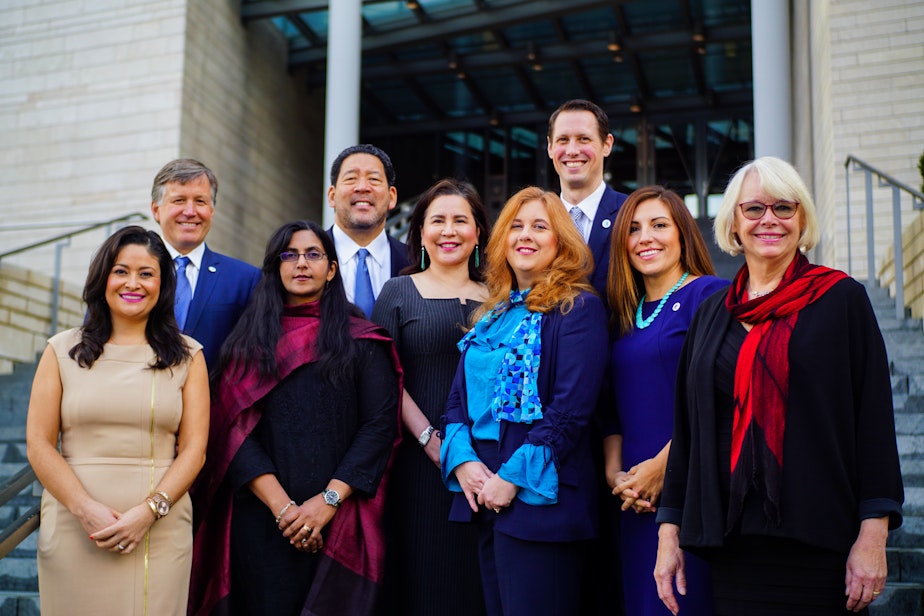Should Seattle lawmakers be able to vote on issues they have a financial stake in?

The Seattle City Council introduced a proposal Tuesday that would allow them to vote on issues in which they have a financial interest, as long as they publicly disclose their conflict.
Under current city rules, lawmakers are required to recuse themselves when they, a family member, or their past or future employer has a financial interest in the topic.
The city’s Code of Ethics outlines that prohibited conduct.
Proposed changes, introduced Tuesday, would let them vote, but require them to be transparent about their conflict of interest.
Councilmember Sally Bagshaw supports the changes. She already discloses a conflict of her own frequently: She owns a condo downtown, an area subject to many council proposals.
Sponsored
She argues she should be able to vote on policies that would affect her building, since it’s not just her who’s invested in the neighborhood.
"We have one of 10,000 parcels, and the total value puts us as something like 1/50,000 of the parcel property value. So, my interest was widely shared by others," Bagshaw said.
She also supports changing the ethics code because most council members represent a specific district, such as Pioneer Square to Magnolia.
"I would argue that my voice for those who have elected me is very important, otherwise District 7 has no representation directly to discuss this issue," she said.
The Seattle Ethics and Elections Commission recommended the change for the same reason. However, some of Bagshaw's colleagues are wary about that rationale, including Councilmember Teresa Mosqueda.
Sponsored
"I actually take a little bit of issue about how this is being defined. We have two folks who represent every district, and I think in addition to individuals being able to call their member, they can also call any member of City Council, especially their citywide members," Mosqueda said.
She said the focus should be on whether a council member would benefit financially from voting for or against a measure, not whether their district will have a voice at the table.
Under the proposal, lawmakers would still have to step aside on topics where they're one of the only invested parties. For example, an upzone on a block where they own a commercial building.
The City Council could vote on the changes next month, but some members have expressed that they won't support the proposal as is. A similar measure to change the ethics code failed in recent years.

